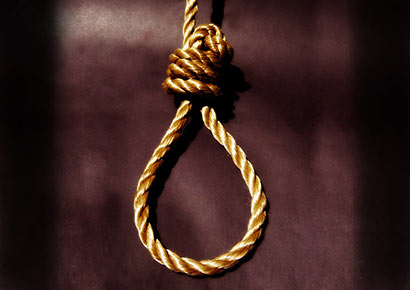US joins 12 nations in refusing to condemn execution of gay people
 In a historic first, the United Nations Human Rights Council has voted to condemn the imposition of the death penalty for consensual same-sex relations.
In a historic first, the United Nations Human Rights Council has voted to condemn the imposition of the death penalty for consensual same-sex relations.
The 47-member Human Rights Council passed the resolution – “The question of the death penalty” – on Friday, with 27 states voting in favour, 13 against and 7 abstentions.
The resolution asked countries that have not yet abolished the death penalty to ensure that it is not “applied arbitrarily or in a discriminatory manner” and that it is not applied against persons with mental or intellectual disabilities and persons below 18 years of age at the time of the commission of the crime, as well as pregnant women.
It also condemns the imposition of the death penalty for consensual same-sex relations, apostasy, blasphemy and adultery.
“It is unconscionable to think that there are hundreds of millions of people living in states where somebody may be executed simply because of whom they love,” commented Renato Sabbadini, Executive Director of The International Lesbian, Gay, Bisexual, Trans and Intersex Association (ILGA). “This is a monumental moment where the international community has publicly highlighted that these horrific laws simply must end.”
According to ILGA’s 2017 State-Sponsored Homophobia report, there are currently six states (eight counting the parts of Syria and Iraq still occupied by Isis) where the death penalty is implemented for same-sex relations, a further five where it is technically allowed (if not actually invoked), and one where it has not yet been implemented.
The resolution also expresses serious concern that the application of the death penalty for adultery is disproportionately imposed on women.
“The entrenched patriarchy and gender stereotyping behind adultery laws are the same causes behind laws that seek to criminalise and execute persons for consensual same-sex relations. And these laws don’t just affect those with non-normative sexual orientations. Trans and gender non-conforming persons also face oppression and violence because of them. We stand together in solidarity,” said Ruth Baldacchino and Helen Kennedy, co-Secretaries General at ILGA.
The resolution was brought on September 29 by a group of countries from across the globe as the Human Rights Council started the final day of its 36th session. Six attempts by Egypt, Russia and Saudi Arabia to amend the resolution and dilute its impact were each defeated in often-close voting at the Geneva-based body.
“We are grateful for the leadership of the eight countries that brought this resolution – Belgium, Benin, Costa Rica, France, Mexico, Moldova, Mongolia and Switzerland – countries that come from every corner of the globe showing truly cross-regional support,” said André du Plessis, Head of UN Programme and Advocacy at ILGA.
The United States joined 12 other countries in opposing the resolution: Bangladesh; Botswana; Burundi; China; Egypt; Ethiopia; India; Iraq; Japan; Qatar; Saudia Arabia; and The United Arab Emirates. South Africa voted in favour of the resolution.
Leave a Reply